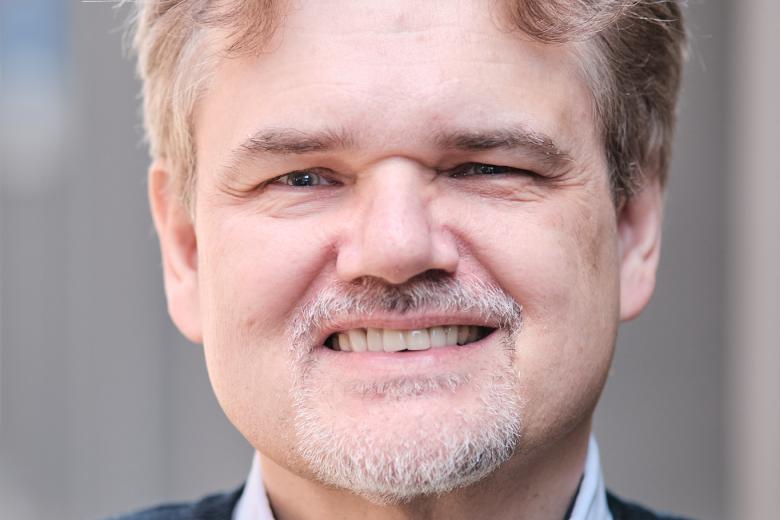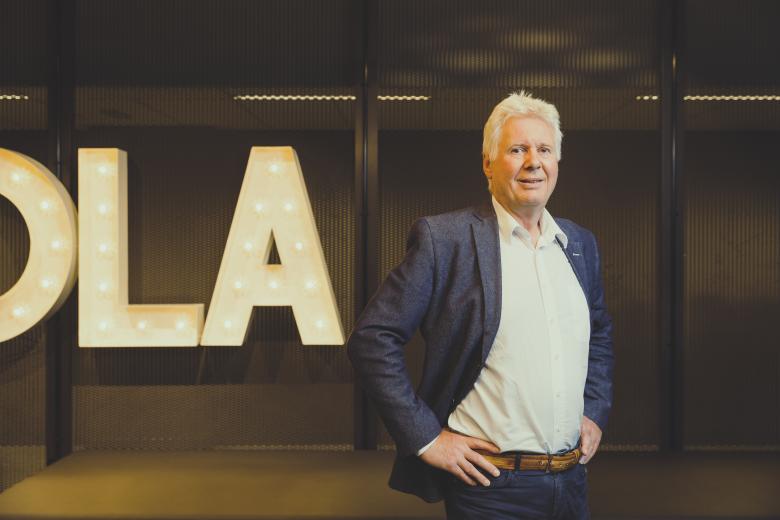Professor Kai J. Jonas | Applied Social Psychology with special focus on LGBTQI+ Diversity and Health
The Faculty of Psychology and Neuroscience at Maastricht University has appointed a new Professor. Prof. Kai J. Jonas will take up the chair “Applied Social Psychology with special focus on LGBTQI+ Diversity and Health”. In the coming year he’ll be structuring his game plan and preparing his inaugural lecture.
A societal signal
Jonas’ research is aimed at the LGBTQI+ community. A diverse group of people that often deals with mental and physical health problems. “These health problems (i.e. HIV) and themes such as: how do we give these people a safe place in society and at work? Are part of my work”.
“I think it’s great that UM has dared to appoint a Professor on this chair”. In the Netherlands (and the world) there aren’t many universities that take this step. With Jonas added, the so-called “pink professors” can be counted on one hand. “Therefore, this appointment also has a symbolic function. It’s a societal and political signal, we’re saying: this is important”.
People with an LGBTQI+ background are often missing a role model. “What they see the most is what they don’t want to become. We, as a university, want to tell the world, our employees, and our students: you can be who you want to be”.
What is Applied Social Psychology?
Let’s start at the beginning: Social Psychology is a fundamental science that looks at the experiences and thinking of individuals in a social context. “Nowadays we have to look at how fundamental science can contribute to solving actual problems”. This is often done under the name of Applied Social Psychology. “This discipline aims at refining and readying this fundamental knowledge, so that it can be applied. In itself this can be seen as a fundamental science”.
Professor Kai Jonas’ focus
Science has made large strides in lowering HIV infections by the use of, for example, PrEP (a preventive drug). “HIV has not been exterminated, but people can live a long live while infected. The consequence is that people with an infection are ageing. Not a lot of research has been done on the ageing of this epidemic. What’s it like to grow old with HIV?”. This is one of the topics that interests Jonas.
“Another theme that I’ve been occupied with for a long time is: how can you protect diversity in a group context?”. Previous research shows that tolerance of diversity is stronger when you create an overarching identity. Every group within that arch can attribute characteristics associated with the identity. Results show that mutual tolerance and acceptance improves. “They were able to demonstrate this in acceptance between European countries. I, and my colleagues, think this is excellent, but it assumes there is no one group that is an obvious majority”. The model breaks down when this is the case. The majority does not easily allow the minority to contribute characteristics to the shared identity. “If you use this model to, for example, define masculinity, you’ll find the obvious majority of heterosexual men to say: we’ll decide that”. Members of the majority feel threatened by the input of the minority. “I have a few ideas on how to tackle this problem, that I want to research as Professor. Under which conditions will we be able to increase tolerance and acceptance in this context?”.
In a short time, a lot has happened
“I’m definitely not a Poster Boy, but this way you can show students: it’s possible to have an academic career on these kinds of topics”. A lot has happened during Jonas’ career. Fresh out of university, Jonas found himself in a German academic landscape where there were only 2 openly homosexual Professors in the field of Psychology. When he asked them for advice on how to navigate this world, the answer he got was: “Don’t tell anyone, don’t do any ‘gay’-research, and just act normal”. In the late 90s it was important for Professors to reflect the hetero normative image. Now in 2020 it’s possible to become a Professor in the field of LGBTQI+ research. “That’s an amazing development. I’m also president-elect of the European Association of Social Psychology, so 2020 will be the year they get their first homosexual president”.
Waving the flag
“I’m not someone who is often waving the flag” says Jonas “but sometimes it’s necessary”. Jonas finds this should be a strategic choice, there must be a purpose to the ‘waving’. “Later this summer I will be speaking at a conference in Kraków, Poland, not the most gay-friendly country. You can be sure that I will be telling my story there”.
Day to day
Jonas’ day to day work will not change that much, his ongoing projects will continue. “But the Professorship will allow me to dive deeper and make more connection, and to keep making bigger steps in developing the field.”
“We do much more than passing on knowledge, we participate in global citizenship. How can you live and work well in a global society? This includes giving people with a minority background the same space and opportunity as everyone else. To that I want to make my small contribution”.
Also read
-
Brain stimulation in people with neglect
Marij Middag (PhD Candidate) and Teresa Schuhmann (Professor of Clinical Applications of Non-invasive Brain Stimulation) from the Department of Cognitive Neuroscience at the Faculty of Psychology and Neuroscience, have recently published their paper Alpha transcranial alternating current stimulation as... -
How do we imagine? ERC Advanced Grant for Prof. dr. Rainer Goebel (FPN)
FPN’s prof. dr. Rainer Goebel has been awarded an ERC Advanced Grant of € 2,5M for his research project Reading the Mind’s Eye: AI inspired personalised brain models of mental imagery . Goebel is among 255 researchers (out of 1829 applications in all domains) in Europe to receive the grant, and he is...
-
“Change the work, not the workers”
Professor Fred Zijlstra is set to retire in May. How does he look back on his career? What is his take on current developments in the field of work and organisational psychology? And how can we, as a society, best organise work—now and in the future?